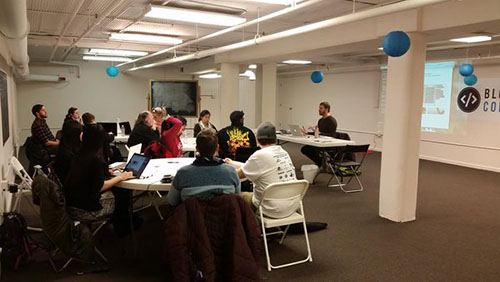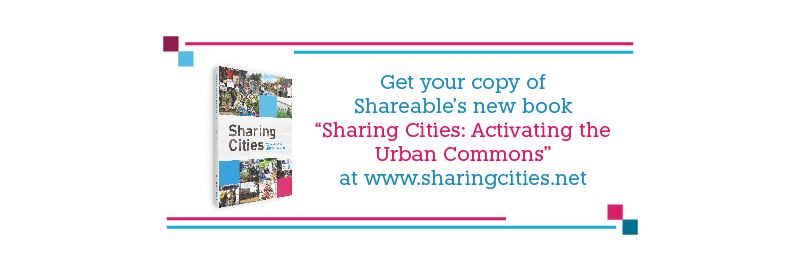Here's the problem: In 2005, officials from the city of Bloomington and Indiana University saw that a budding tech sector could be the future of the city. The university's School of Informatics had just acquired its own buildings, with a forthcoming deal to house the department of computer science.
Meanwhile, the State of Indiana had approved Bloomington's application for a 65-acre Certified Technology Park, allowing the city to keep some CTP tax revenues and prompting it to court new technology firms.
Beyond business and research, Bloomington had a growing tech culture. Humanetrix, a nonprofit organization founded in 2002 that supports technologists' public interest projects, had already launched three major tech and innovation events by 2011 — The Combine, Ignite Bloomington, and TedXBloomington. Adding to the scene, 2010 saw the birth of Bloomington's first hackerspace, Bloominglabs, which hosts free, weekly open nights, and the launch of an annual Makevention event, drawing dozens of exhibitors and hundreds of area residents. What’s a good way to ensure that people are empowered to share in Indiana’s growing tech sector?
Here's how one organization is working on the problem: The Bloomington Technology Partnership, comprised of the city of Bloomington, the Bloomington Economic Development Corporation, Indiana University’s Innovate Indiana, and Indiana University's Office of Engagement, rallied local tech companies, public investment firms, and coding talent to come together — for free — in The Bloomington Code School.
Twelve weeks of courses on front-end web development, website design, PHP, JavaScript, and Rails development are guided by local tech experts, who act not just as teachers "but also to connect [students] to mentors outside the code school program," instructor Brandon Pfeiffer told Indiana Daily Student News. The Community Foundation of Bloomington and Monroe County provide a grant; the Monroe County Public Library provides free access to the online learning platforms; CFC Properties donates workspace; and Smithville Communications provides complimentary high-speed broadband access — all to create this community coding commons.
Results:
- The Bloomington Code School has had 200 students in just its first two years, with many graduates quickly finding local employment, according to the Bloomington Technology Partnership.
- According to the 2015 Hire Up Indy "Investment Strategies for Developing Tech Talent" report, the Bloomington Code School is setting the bar: "[They] have successfully prepared talent for the growing need for software developers in their respective communities through online learning programs that provide low-cost, flexible and self-paced training courses."
Learn more from:
• Bloomington Technology Partnership
This case study is adapted from our latest book, "Sharing Cities: Activating the Urban Commons." Get a copy today.
Header image of students at Bloomington Code School learning from a volunteer lecturer provided by Katie Birge










